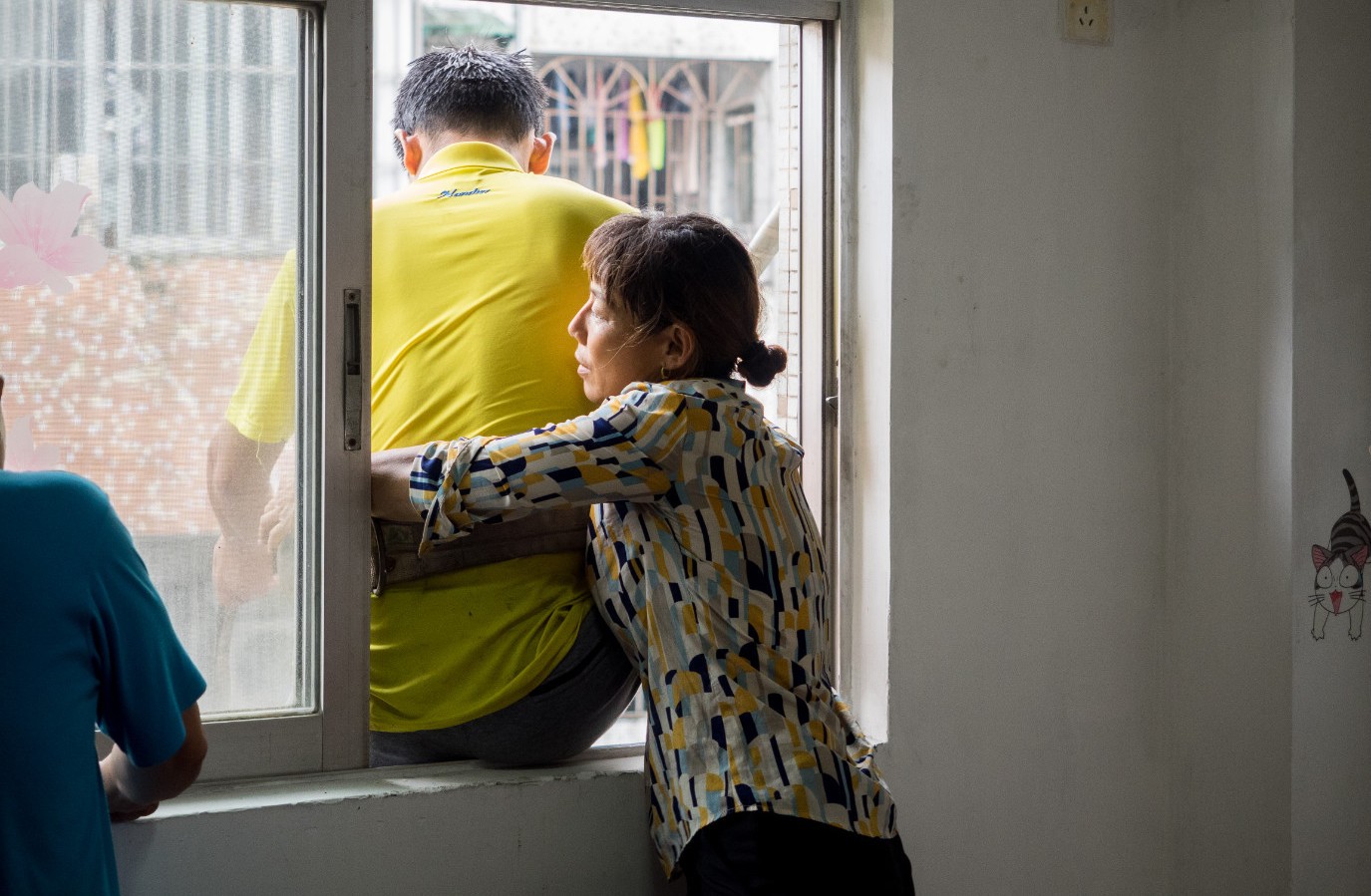“You’re going out!” “You’re back!” “Did you eat?” Old Li shouts from within his guard box, as people enter and exit the mid-range Futian apartment complex he is ostensibly charged with guarding.
He isn’t a security guard, not in the Western sense at least, but a bao’an. A profession so singular to China – yet so ubiquitous within the country – that English speakers inevitably adopt the Chinese word.
Job turnover is high and wages low. Bao’ans are not trusted with master keys, they usually don’t patrol and report and job expectations don’t seem to be more than to sit, greet and ‘keep an eye on things.’
There are outliers of course: at the Futian complex, one bao’an checked identities so zealously that residents began using a different entrance. Another bao’an would drink rice alcohol on duty and point out anyone he suspected of being a kept woman. Both left the jobs after a few months.
Old Li – as he asks to be called – proves himself a solidly average bao’an during his nightshift inside the guard box where ‘watch the window well’ is written on a chipping plaster wall. Li spends most of his 12-hour shift behind a desk with eyes on a cellphone screen, his uniform hanging loose around his thin body.

A strip of florescent bulb blazes above him as he acknowledges passersby with a shout or a smile.
His front lip rises when he grins, revealing a shock of bare gums. Though only 40, Li is missing the top row of his front teeth.
“If I eat three times in one day, it costs me five yuan,” he says, using chopsticks to fish rice and vegetables from a plastic container. Usually bao’ans are provided with room and board, given their low wages. It seems Li only receives two free meals a day in Shenzhen.
“It wasn't like this in Beijing, they gave me three meals.”
Asked to write down where he is originally from, Li’s hand hesitates over the paper. He slowly pens the characters for Heilongjiang, Daxin Anling, the northernmost part of China. Bordering Russia, it is mountainous and notable for occasional sightings of the polar lights. The area has an average temperature of negative 20 degrees Celsius, which is what eventually drove Li south, he says, though he never explains why he would wait until 37 years old to leave.
“I didn’t grow rice or grain,” Li says about the life he left in the north. “I just grew some vegetables.”
He is more forthcoming about how he started working as a bao’an: “Near the Beijing train station, I was walking under a bridge and a guy from Jiangxi asked ‘trouble finding a gig?’”
After two years, Beijing proved too cold for Li, so he moved to Shenzhen. Now he shares an underground room with five others. Despite the apparent hardship, he has no intention of returning home.
“I like it here, it’s warm,” he says. “It’s just too cold to go back.”
THE DIRTY DETAILS
Salary: RMB2,700
Days per week: 7
Hours per day: 12
To read more Man on the Street click here.





















0 User Comments